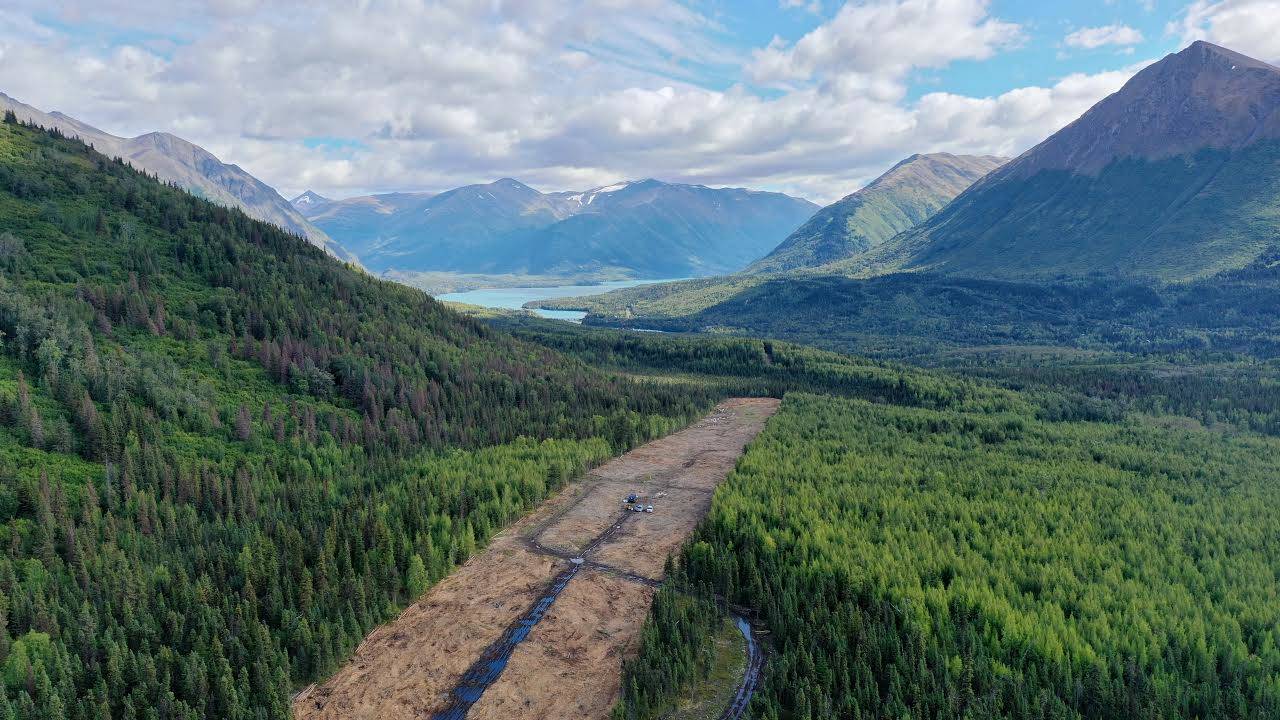Trail access and upcoming construction were among the topics addressed during a public meeting for the Cooper Landing Bypass Project last week.
During a public meeting held remotely last Wednesday, workers with the Alaska Department of Transportation reminded people to expect traffic delays and construction noise when traveling through Cooper Landing this summer. Project managers, public involvement staff and civil engineers all presented during the meeting, which lasted for about two hours.
The noise and delays will be the result of construction by workers on the Sterling Highway MP 45-60 project, also known as the Cooper Landing Bypass Project. The project aims to reduce congestion on the Sterling Highway through Cooper Landing and to improve highway safety by bringing some existing roads up to current highway design standards by constructing an alternative route through the area.
About 10 miles of new road will be constructed starting at about MP 46.5 off the Sterling Highway and will cross Juneau Creek before rejoining the highway around MP 56.
Bypass construction work is scheduled to increase in 2021, including the beginning of reconstruction on the main highway as part of Phase 1A of the project, continued clearing of the off-alignment and staging areas, grading and draining work on sections of the new road and the improvement of sections of the pioneer road.
Project leaders urged people Wednesday to “Know Before You Go” if your travel through the area may be disrupted by construction work. The Alaska Department of Transportation and Public Facilities will notify the public about upcoming construction. AlaskaNavigator.org can be used to check construction status. 511.Alaska.Gov can be used to check road conditions and Sterlinghighway.net can be used to check on project updates.
Those traveling should expect additional trucks on the road transporting materials from Soldotna and Anchorage, drilling and blasting with noise mitigation measures in place and minor trail reroutes during bridge access work.
One of the biggest design changes announced by project leaders during Wednesday’s meeting is the intersection on the bypass’ east side. That area initially had “T” intersections, but will now feature a westbound left turn lane, an eastbound right turn lane, an eastbound ramp to Anchorage and a westbound stop-controlled left turn to Soldotna. Lance Debernardi with R&M Consultants, Inc. said Wednesday that in redesigning the intersection, they considered traffic patterns and efficiency.
Other changes will be made to recreation access in the area, which conflicts with the new highway. To the Resurrection Pass Trail, DOWL Engineer Kelly Kilpatrick said they are proposing a new parking lot and trailhead. The new lot will also provide access to the pedestrian and equestrian trail that will run alongside the new highway. The Bean Creek Trail will be extended to cross under the bridge and a new pullout will provide new access to the trail. The Slaughter Gulch Trail Fork will be removed and a new piece of trail will connect the northern and southern sections of the eastern fork.
Undoubtedly, the project’s biggest feat will be the construction of a steel-arch bridge over the Juneau Creek Canyon. Some of the construction happening this summer includes creating access to where the bridge will cross on either side of the canyon. The bridge by itself is expected to take three years to complete.
The foundations of the bridge are expected to be lower than initially anticipated, meaning the bridge will be lower and will result in fewer visual and noise impacts.
A virtual open house for the project can be viewed until May 14 at sterlinghighwayonline.net. Wednesday’s full meeting can be viewed at youtu.be/Fu0YnQcBYOM.
Reach reporter Ashlyn O’Hara at ashlyn.ohara@peninsulaclarion.com.

